Scalp Issues We Address
Those who suffer with chronic scalp issues know the difficulties of searching for help at the drugstore counter or doctor’s office, only to have the problem come return, possibly worse than before. What you may not know is that many treatments contain oils and irritants that directly contribute to scalp problems and can permanently damage the deep layers of the scalp and/or alter it’s pH levels.
Scalp issues that persist can also be a sign of underlying health concerns and are more than just cosmetic problems. Our approach to scalp issues begins with the details of your medical history, laboratory work-up and a meticulous microscopic analysis of your hair and scalp. An evaluation of your current hair care practices and products is needed to identify ingredients that may be contributing to the problem. Next, we will design a personalized treatment plan designed to restore scalp health and set you on a path toward long-term wellness.
Some of our most effective treatment methods are listed below.
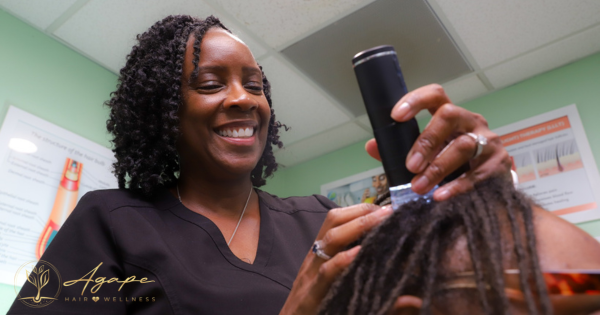
Scalp Disorders
Dry/ Oily Scalp
Dry or oily scalp, or a combination of both, are frequent concerns among individuals. These issues can stem from various factors such as hormonal fluctuations, nutritional deficiencies, environmental influences, or improper hair care practices, all of which disrupt the pH balance, hydration, and natural oil (sebum) levels of the scalp.
An imbalanced scalp may manifest as excessive dryness, causing flakiness and tightness, or as excessive oiliness, resulting in a greasy, heavy scalp. If left untreated, these conditions can compromise follicle health, leading to inflammation, infections, and ultimately, hair loss.
Following a thorough scalp examination, personalized trichology treatments are designed to restore the scalp's natural equilibrium, promoting scalp health and supporting hair growth.
Itchy, Tender, or Painful Scalp
Discomfort such as itching, burning, or soreness on the scalp often indicates inflammation, nerve sensitivity, or underlying health issues. Common triggers include nutrient deficiencies, allergic or sensitivity reactions to hair care products, or the strain caused by tight hairstyles. A more serious cause can be autoimmune disorders, where the immune system mistakenly attacks hair follicles.
If left untreated, these symptoms can lead to chronic inflammation, which can permanently damage hair follicles and result in lasting hair loss. Identifying the root cause is essential to halting progression, restoring scalp comfort, and supporting healthy hair growth. Our trichology treatment plans provide both immediate relief and long-term restoration, addressing the underlying issues for optimal scalp and hair health..
Chronic Dandruff
Dandruff is more than just a cosmetic concern—chronic flaking can indicate an overgrowth of microbes or deeper issues like hormonal imbalances, metabolic issues, and poor gut health. Flakes may be dry or oily and often return even after using medicated shampoos which temporarily treat symptoms but do not address the underlying issues.
Dandruff is chronic and can be triggered by oils or irritants in hair care products, dietary choices, changes in seasons and stress. Successfully management requires a holistic approach which addresses both internal health as well as the scalp environment itself. Our personalized approach can help break the cycle and restore confidence.
Seborrheic Dermatitis
Seborrheic dermatitis is a frequently overlooked scalp condition characterized by large, oily flakes, scalp redness, irritation, and itch. Like dandruff, it is chronic, persistent, often exacerbated by similar triggers. However, the underlying inflammation associated with seborrheic dermatitis can be severe, potentially leading to scalp tenderness, infections, and even hair loss.
This condition can extend beyond the scalp to affect areas like the eyebrows, ears, and beard. Our trichology treatment packages are designed to address the underlying causes and triggers such as stress, hormonal imbalances, and nutritional deficiencies. We thoroughly review hair care products to identify and eliminate ingredients that may worsen the condition. Additionally, we provide therapeutic scalp care aimed at managing symptoms effectively and preventing future flare-ups.
Our Treatments
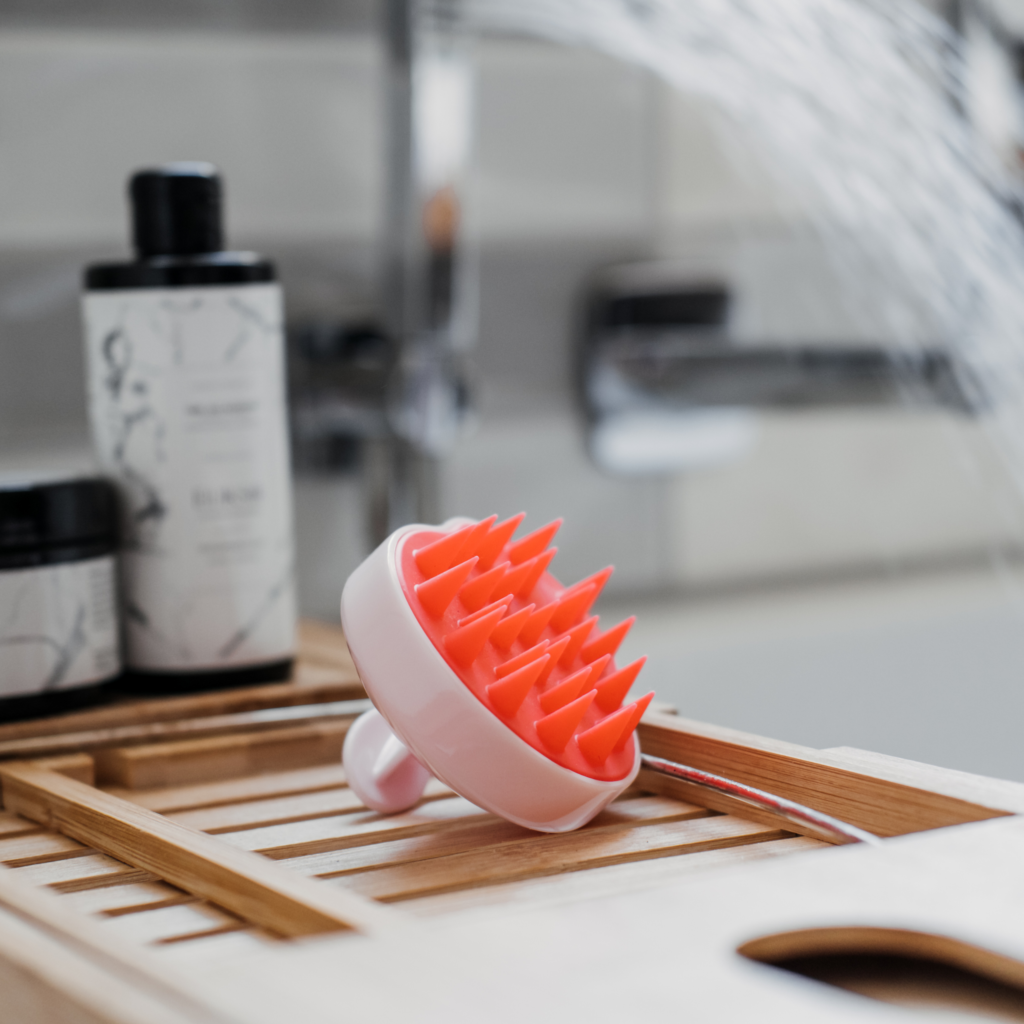
Scalp Detox/Exfoliation
We always begin by establishing a healthy scalp environment. Our organic peat-based treatment is purifying and exfoliating, removing accumulated toxins and harmful microorganisms. It also removes thick plaques and dead skin layers. This prepares the surface to absorb later treatments.
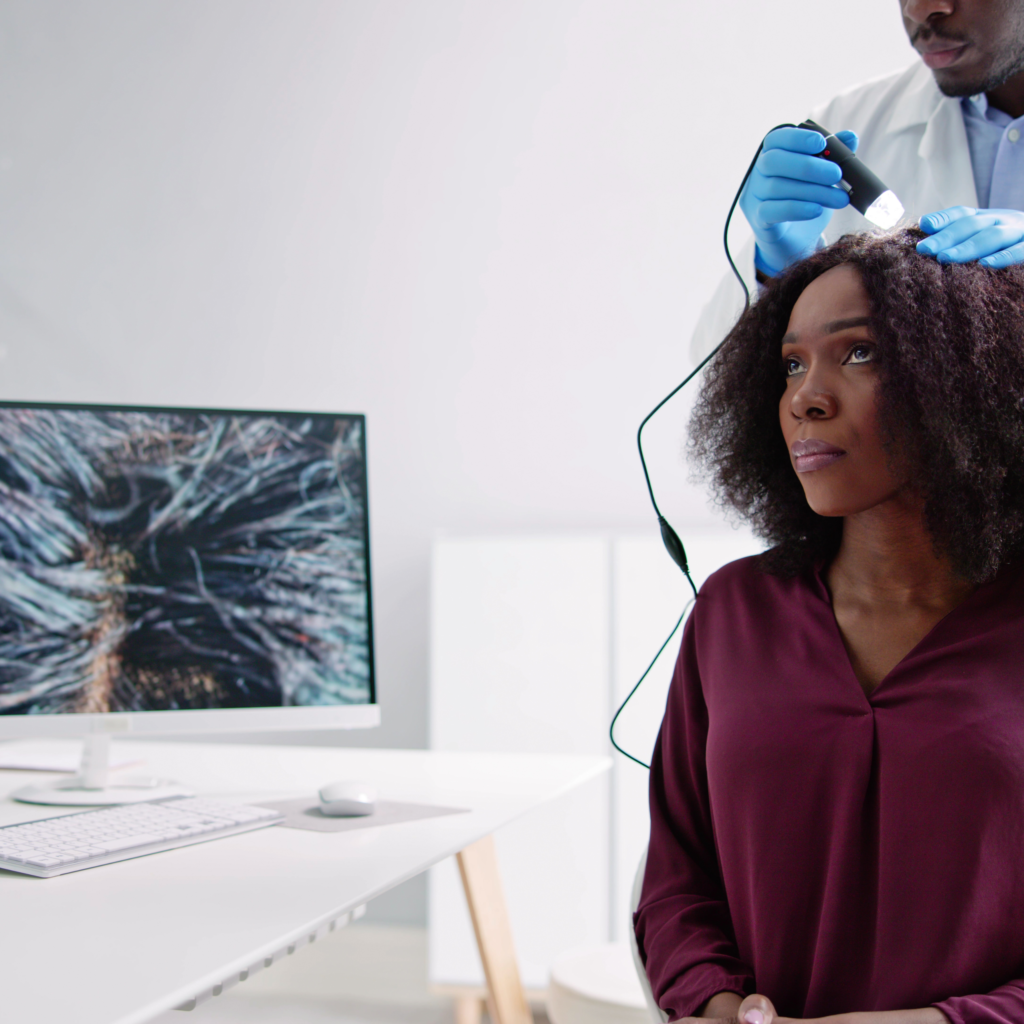
Low Level Laser Therapy
Our professional-grade laser is a must for almost all hair/scalp conditions. LLLT is non-invasive harnessing the power infrared light which has been proven since the 1960's to promote tissue repair, reduce inflammation and stimulate the stem (growth) cells.
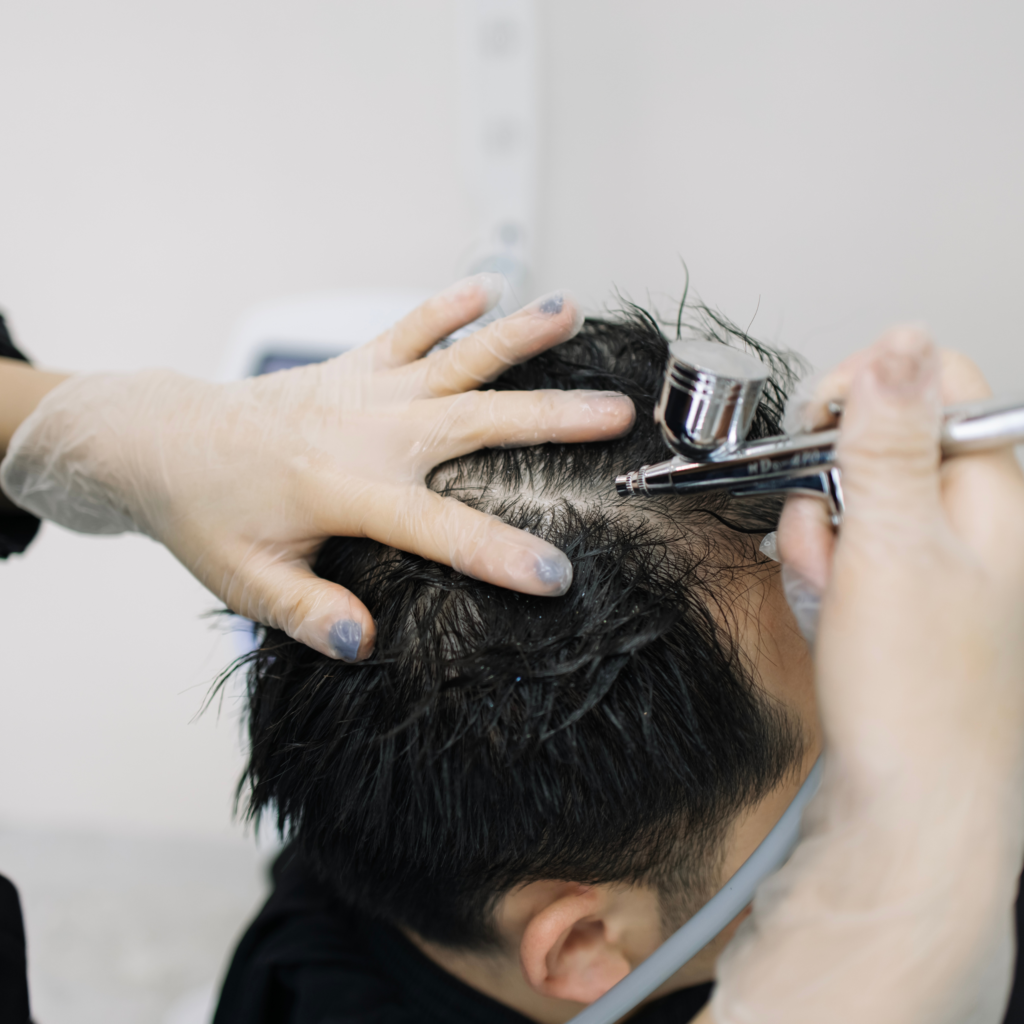
Oxygen Scalp Therapy
This is a natural, non-invasive treatment which stimulates the scalp with oxygen and is applied with one of our plant-based tonics. This stimulates blood flow, replenishes moisture, delivers nutrients and balances scalp and hair from the roots to the ends.
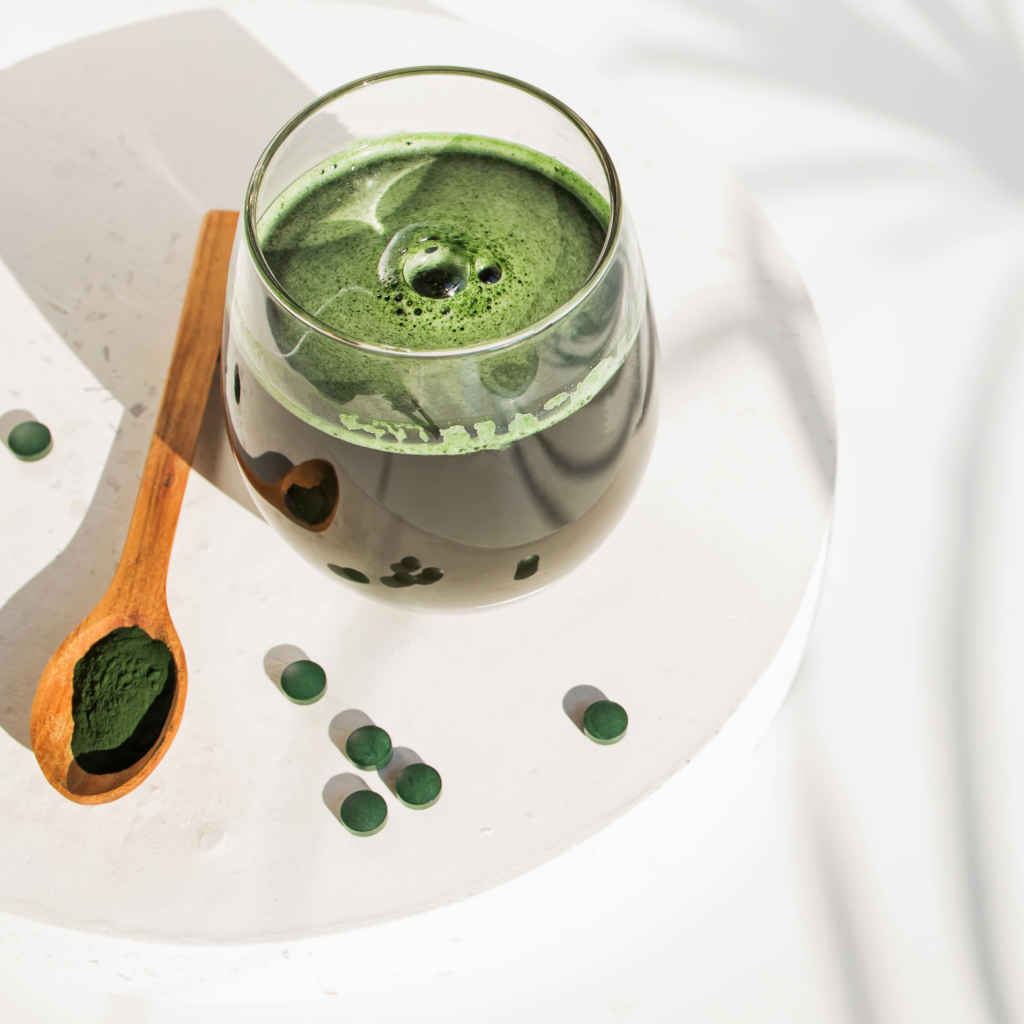
Nutrition Interventions
Conquering scalp issues frequently involves , changes to diet and lifestyle to balance the body, control pH and maintain healthy metabolism. This reduces inflammation which is a trigger.
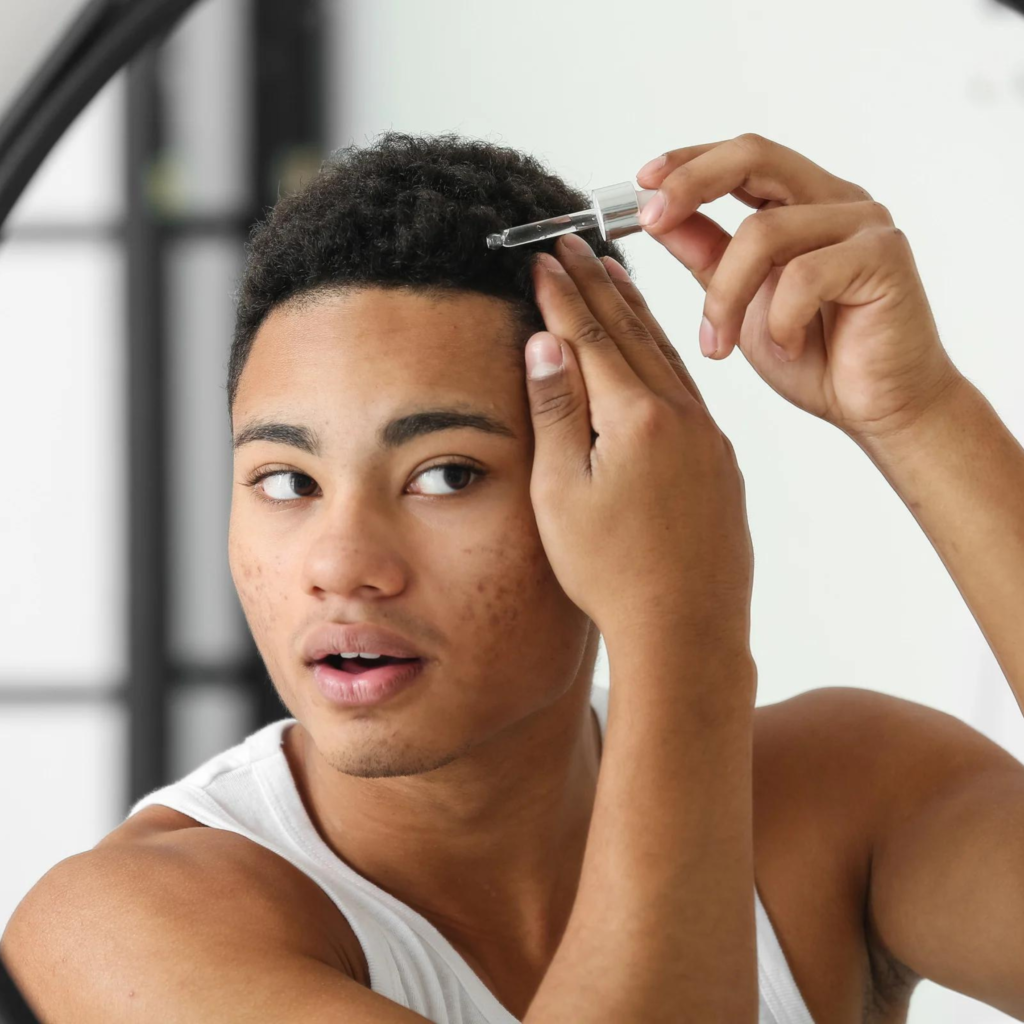
Custom Scalp Tonics
Formulated for treatment at home and in the clinic, your personal formula will heal your scalp, targeting inflammation, microbial overgrowth, healing tissues, and reducing flaking, sensitivity, itch and redness.
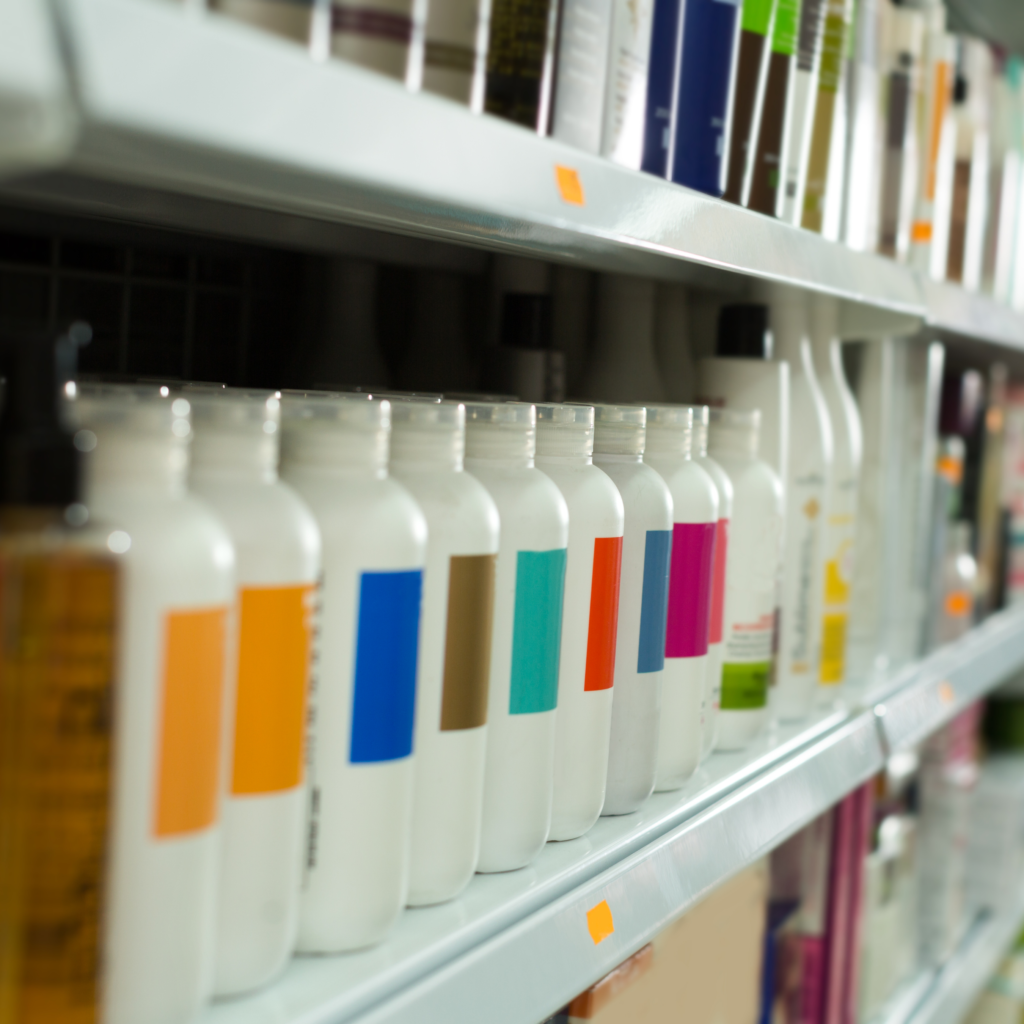
Hair/Skin Products
Most scalp issues have triggers, some of which are the products used in daily care. We will do a detailed review of all product to eliminate aggravating substances.


